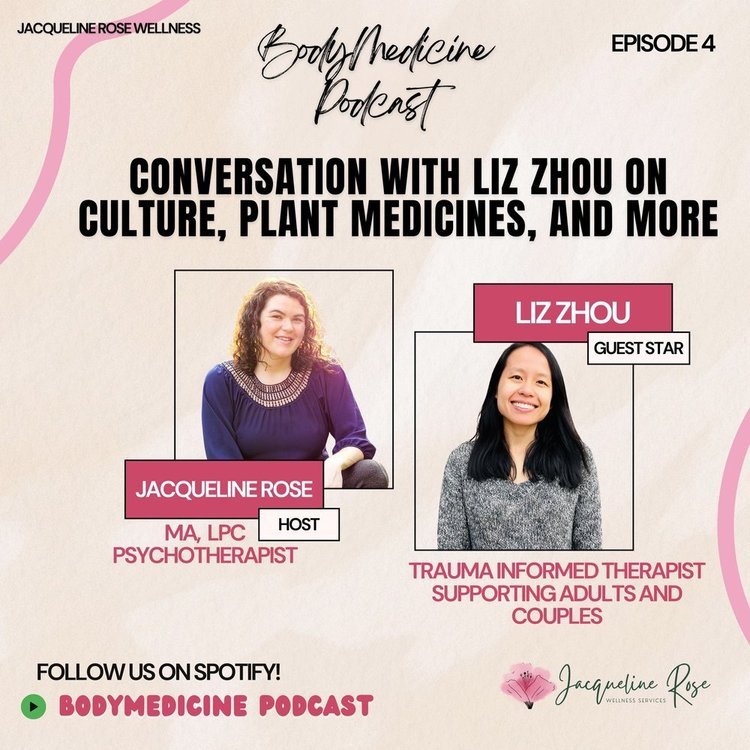Liz Zhou
Holistic Trauma Therapist, Coach, Speaker
BLOG
I help highly sensitive, neurodivergent adults & couples heal their nervous systems & connect with their authentic selves.
WHAT WOULD YOU LIKE TO LEARN ABOUT?
An Honest Response to “How are You?”: Using IFS “Parts” Language to Acknowledge Complexity
We all have “parts,” working inside the nervous system, helping us to navigate life in whatever way makes sense. Parts of you might numb out in response to overwhelming events. Other parts might hold grief, rage, or fear. Every part has something important to share.
Navigating Neurodivergence in a Complex World: Joy, Grief, Care, Hope
Being a human in this world, in these times, is to hold grief in one hand & joy in the other. How do we acknowledge suffering, without losing ourselves in it?
Nervous System Tips for Neurodivergent Folks in Burnout & Meltdown Mode
As neurodivergent (autistic, ADHD, highly sensitive) people, we face an uphill battle when it comes to regulating our nervous systems: the stressors of everyday life, the weight of collective traumas, and a world that wasn’t built for our wiring.
For Neurodiverse Couples: 8 Tips for Healthy Conversations about Money
What if financial conversations could feel compassionate, curious, and connecting? (Instead of devolving into arguments and frying your nervous systems.) Here’s a neurodivergent-friendly guide to talking to your partner about money – in a way that works with your brains and brings you closer together.
Reflections on Intergenerational Wisdom & Nervous System Healing
Our bodies hold subconscious & intergenerational information. Your ancestors play a role in the story of your nervous system.
Brainspotting Therapy = Staring Off into Space?
Holistic therapist, Liz Zhou, explains Brainspotting therapy in simple terms. Learn how to heal from painful experiences — without having to talk the whole time.
Giving & Receiving Care: The 5 Love Languages of Building Community
This is your (neurodivergent-friendly) guide to building community in a world that so desperately needs it. Let’s explore the 5 love languages of collective care — quality time, gifts, words of affirmation, collective presence, and acts of service.
Healing Complex Trauma as a Neurodivergent Person: The Speed of Trust
Here’s what it means to trust our nervous systems — even if healing feels unbearably slow sometimes. Neurodivergent therapist Liz Zhou shares insights on healing complex PTSD.
Neurodivergent Pep Talk: There’s Nothing Wrong with Being Different
The world needs many different types of people... because if we were all the same, how boring would that be? Neurodivergent therapist, Liz Zhou, shares affirmations for autistic, ADHD, and highly sensitive folks.
Body-Mind-Spirit Healing, Ceremony, and Integrating Plant Medicine Work + Psychotherapy
How do we bring sacred ceremony & healing into our lives, without appropriating from other cultures? What would it look like to heal spirit, body, and mind? Liz Zhou shares insights from her role as a shaman’s translator – and how it informs her work as a psychedelic integration therapist.
Liz’s Neurodivergent Letters: A Day of Travel Mishaps + The Sensory Delights of NYC
Explore excerpts from Liz’s Neurodivergent Letters, a weekly email series by holistic therapist Liz Zhou.
For Autistic (or Multiply Neurodivergent) Adults: Benefits of Working with an Autistic Therapist
We understand that therapy for autistic people is not about “fixing your brain,” “curing autism” or “making you less neurodivergent.” It’s about supporting your full, authentic self.
For Late-Diagnosed Autistic Adults: How to Unmask after a Lifetime of Masking
Once you discover your neurodivergence, you may realize how much you’ve been hiding your true self. Let’s explore 5 types of unmasking, so you can live a more comfortable and authentic life.
Why Autism is Underdiagnosed in BIPOC Communities (and Why Self-Diagnosis is Valid)
If you’re an autistic person of color who feels alone — that makes sense, and you’re also not alone. Autism is often depicted as a white experience, though it shows up across all races, cultures, and identities. Let’s explore why self-diagnosis is valid, especially in the context of systemic challenges faced by BIPOC communities.
What’s the Best Therapy for Autistic Adults? | Reflections from an Autistic Therapist
Traditional talk therapy isn’t always a fit for autistic adults. Learn about neurodiversity-affirming therapy, and how it can work with your brain to help you understand and unmask your authentic self.
For Autistic Adults with Travel Anxiety: How to Make Your Next Trip as Stress-Free as Possible
An autistic therapist shares ways to regulate your nervous system, manage sensory overload, and accommodate your needs, so you can actually enjoy the journey.
How to Cope with End-of-Life & Death Anxiety
Explore practical tips and compassionate reflections, from a death-aware therapist, on navigating our very human fears and concerns around loss, end of life, death, and dying.
The Impacts of Ableism & Racial Trauma on Autistic People of Color
An autistic therapist of color explains the challenges of under-diagnosis in BIPOC communities — and the impact of systemic oppression on nervous system regulation.
For Grieving Neurodivergent Adults: How to Care for Your Nervous System in Painful Times
Learn how grief shows up for late-diagnosed autistic & ADHD adults. Discover neurodivergent-friendly self-care practices, and the best therapies for processing grief (Brainspotting and IFS).
How to Recover from Autistic Burnout: 5 Types of Rest
Feeling like you’re running on empty? Learn about autistic burnout and how to manage it. We’ll explore different types of rest needed for recovery — from sensory breaks to social boundaries — providing actionable strategies to restore your energy.




















